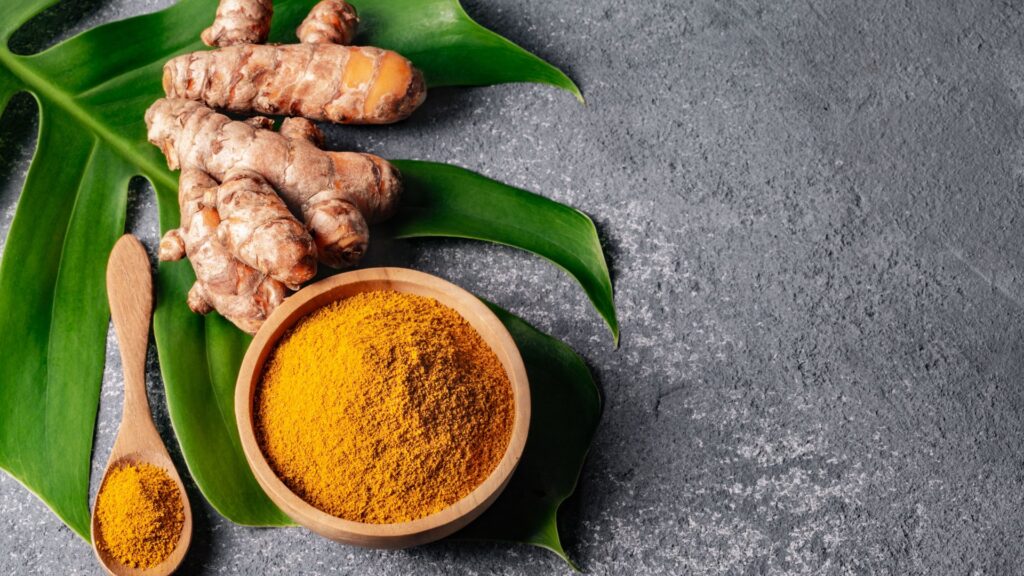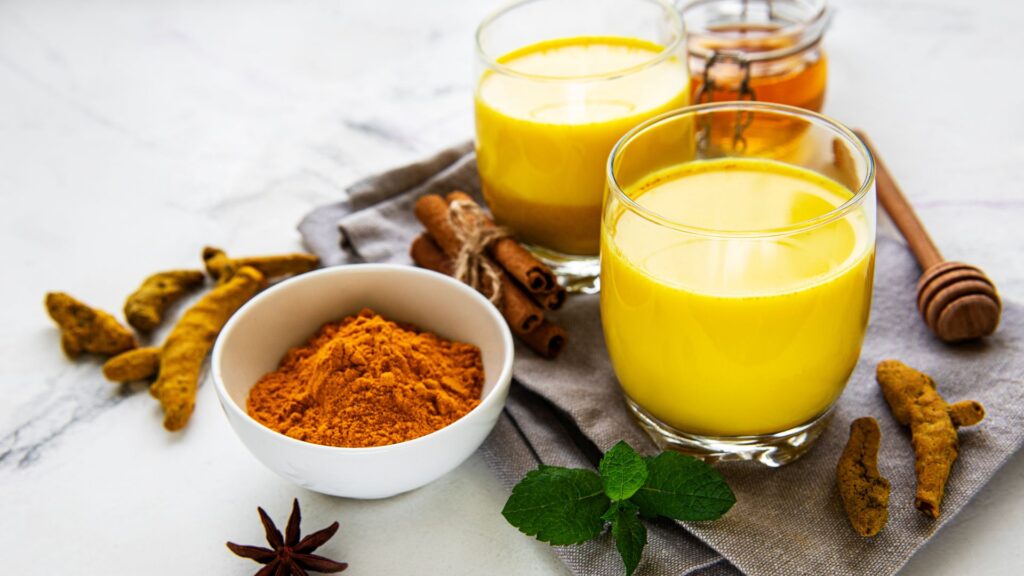
Turmeric is a common spice from the ginger family derived from the root of Curcuma longa. It is traditionally used in Indian cooking, social and religious ceremonies, and traditional ayurvedic medicines against various ailments, including gastric, hepatic, gynaecological, and infectious diseases. Turmeric has a warm, bitter taste and is found in all Indian kitchens. Because curcumin and other compounds in turmeric help reduce swelling, it is often used to treat conditions that involve pain and inflammation. It contains natural compounds like polyphenols, flavonoids, and ascorbic acid known for their antioxidant properties. The amin compound found in turmeric is called curcumin which also gives turmeric its typical yellow colour.
Antioxidants are compounds found in various foods and beverages that play a crucial role in maintaining our health by neutralizing harmful molecules called free radicals. Free radicals are unstable atoms or molecules that can cause damage to cells, proteins, and DNA through a process called oxidative stress. This damage has been linked to a variety of chronic diseases, including cancer, heart disease, and aging-related conditions.
Antioxidants work by donating electrons to stabilize free radicals, thereby preventing them from causing cellular damage. Common antioxidants include vitamins C and E, beta-carotene, selenium, and various phytochemicals found in fruits, vegetables, nuts, seeds, and whole grains. Curcumin in turmeric is one such phytochemical, responsible for most of turmeric’s health benefits. Curcumin is a polyphenol that helps neutralize free radicals and reduce oxidative stress in the body.
Curcumin, along with some other compounds work synergistically to provide antioxidant effects, protecting cells and tissues from damage caused by free radicals and oxidative stress. Additionally, turmeric contains vitamins C and E, which are also antioxidants and contribute to its overall antioxidant activity.

Some of the significant benefits of turmeric, particularly due to its antioxidant properties, include:
- Neutralizing Free Radicals: Turmeric contains powerful antioxidants that help neutralize harmful free radicals in the body. Free radicals are unstable molecules that can damage cells and contribute to aging and various diseases, including cancer, heart disease, and Alzheimer’s disease. By scavenging these free radicals, turmeric helps protect cells from oxidative stress and damage.
- Anti-Inflammatory Effects: Inflammation is a natural response by the body to fight off pathogens and repair damaged tissues. However, chronic inflammation is responsible for various diseases. Curcumin in turmeric has potent anti-inflammatory properties and can help reduce inflammation by inhibiting the activity of inflammatory enzymes and molecules in the body.
- Protecting Against Chronic Diseases: Due to its antioxidant and anti-inflammatory properties, turmeric may help protect against chronic diseases such as heart disease, cancer, diabetes, and neurodegenerative conditions like Alzheimer’s and Parkinson’s disease. By reducing oxidative stress and inflammation, turmeric supports overall health and may lower the risk of developing these diseases.
- Supporting Brain Health: Curcumin in turmeric has been studied for its potential to support brain health and cognitive function. It may help enhance memory and cognitive function, as well as protect against age-related cognitive decline and neurodegenerative diseases.
- Improving Skin Health: Antioxidants in turmeric can help protect the skin from damage caused by environmental factors and UV radiation. Turmeric may also help reduce inflammation associated with skin conditions such as acne, eczema, and psoriasis, promoting healthier skin.
- Boosting Immunity: The immune-boosting properties of turmeric, primarily attributed to its antioxidant content, can help strengthen the immune system and support overall immune function. This may help the body fight off infections and illnesses more effectively.
- Supporting Digestive Health: Turmeric has been used traditionally to support digestive health. Its anti-inflammatory properties may help alleviate symptoms of digestive disorders such as irritable bowel syndrome (IBS) and inflammatory bowel disease (IBD). Additionally, turmeric may stimulate bile production, aiding in digestion and liver function.
It is important to note that while turmeric offers many potential health benefits, its effectiveness may vary depending on factors such as dosage, bioavailability, and individual response. Consuming turmeric in the right way can help maximize its antioxidant benefits.

Here are some tips on how to consume turmeric for its antioxidant properties:
Use Turmeric in Cooking: Incorporating turmeric into your daily meals is one of the easiest ways to consume it. You can add turmeric powder to curries, soups, stews, stir-fries, rice dishes, and even smoothies. You may blend fresh or powdered turmeric into your favorite smoothie recipes. Combine it with other antioxidant-rich ingredients like berries, spinach, kale, and flaxseeds for an extra boost. In India, you may also get fresh turmeric in the market which is even better than the powdered version. But you may not be able to get it every day, so in that case, powder comes in handy.
Golden Milk (Turmeric Latte): Golden milk is a popular beverage made by blending turmeric with milk. You may add black pepper, and other spices like cinnamon and ginger to it. Black pepper contains a compound called which can enhance the absorption of curcumin in the body. To prepare Golden milk you just need to boil the milk with turmeric, fresh, or powder for a few minutes. Strain it with a strainer and it is ready for consumption. Drink it when it is still hot. Do not drink it too hot as you may burn your mouth.
Turmeric Tea: You can make turmeric tea by steeping fresh turmeric root or turmeric powder in hot water. You may add some honey or lemon juice to it if you prefer. Again, adding a pinch of black pepper can help enhance the absorption of curcumin.
Turmeric Supplements: If you find it challenging to consume turmeric through food, you can consider taking turmeric supplements. Also, supplements contain far more quantity of active compounds than fresh or powdered turmeric. To actually help in ailments, generally higher dosage of curcumin is recommended, which cannot be achieved by using it just as a spice. That is why supplements are usually prescribed for specific ailments.
Look for supplements that contain black pepper extract or piperine to enhance curcumin absorption. Curcumin is fat soluble, so it may be beneficial to consume it with fat fat-containing diet i.e. milk. Always consult an Ayurvedic doctor before taking any supplements.